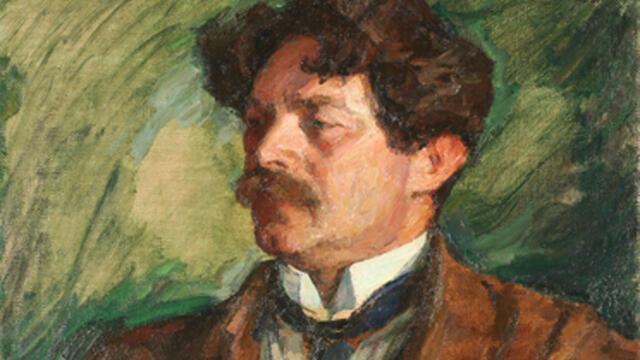Saul Tschernikhovsky

One of the great Hebrew poets of the modern period, Saul Tschernikhovsky (Shaul Tshernikhovski) was born in Mikhailovka, a small village in southern Ukraine. Unlike many Hebrew writers of his era, he did not have a traditional religious education. Instead, he studied in modern Hebrew and Russian schools, learned ancient and modern languages in Odessa, studied medicine in Heidelberg and Lausanne, and became a medical doctor in Kharkov (Kharkiv) and Kiev. Attracted to Zionist and Hebrew literary circles in the 1890s, Tschernikhovsky launched a career in Hebrew poetry that generated controversy and ever-deepening excitement from the moment of his debut. Enrapturing Hebrew readers with his mastery of classical forms long neglected in Jewish letters, particularly sonnets and coronas, his poetry ranged from Romantic reimaginings of biblical texts and figures to poetry that shocked and enthralled contemporaries with its unashamed embrace of vitalism, aestheticism, eroticism, and the figures and tropes of classical Greek culture, the antithesis to traditional Judaism and its values. Nearly as impactful as his lyric poetry was his series of translations of world classics into Hebrew, which included Homer, Anacreon, the Finnish Kalevala, Shakespeare, Goethe, Heine, Byron, Shelley, and Pushkin. Readers experienced these translations as proof that Hebrew could encompass world literature and as great steps forward to a truly European Hebrew culture. During World War I, he served as an army doctor, and this searing experience gave birth to his great vitalist poem of innocence and experience, “To the Sun.” No friend of the Bolshevik Revolution, Tschernikhovsky left Russia in 1922 for Istanbul, then Berlin, and finally migrated to Mandate Palestine in 1931.

